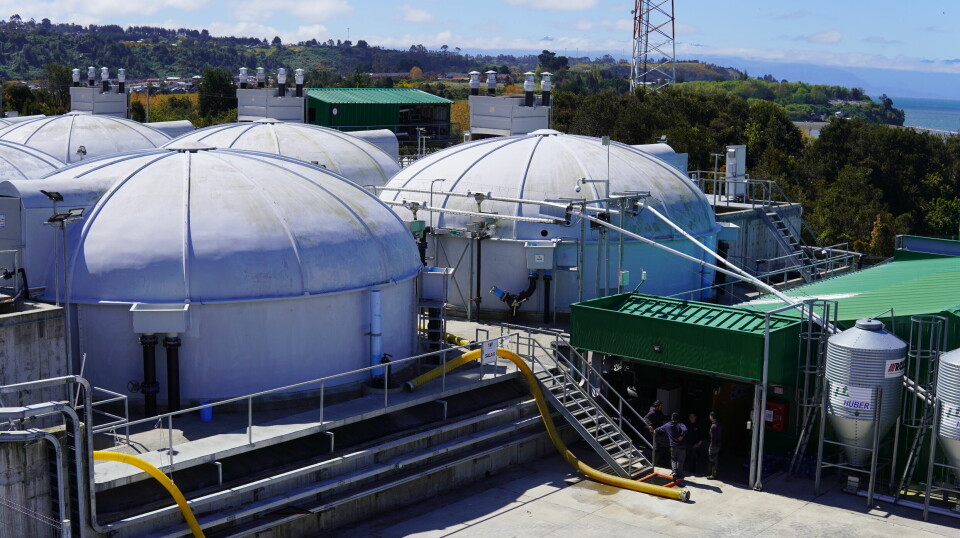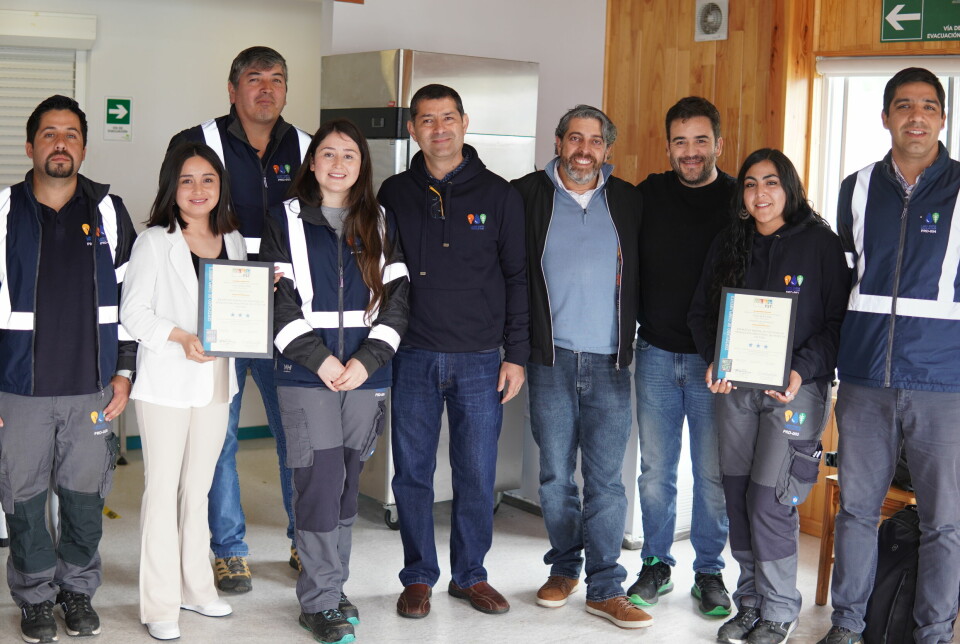
A six-year journey to better fish welfare
It has taken time and effort, but smolt producer Lago Sofia has now become the first in Chile to earn WELF CERT approval, receiving the highest score for procedures, practices and protocols
The Chilean company Lago Sofia has worked for several years to optimise the design of its hatchery, increase awareness of animal welfare among its employees and fine-tune production processes. Last week it was finally certified according to the “WELF CERT” standard, issued by the certification company FSTeam, which is supported by the Chilean Animal Welfare Association and based on local regulations and recommendations from the World Organisation for Animal Health (OIE).
Lago Sofia said in a press release that it achieved the highest level of “Animal welfare in production systems for farmed fish” in the WELF CERT standard.
Chief executive Miguel Portus said the company started the certification process six years ago, when it began to rebuild its hatchery and plan to introduce best practices for animal welfare.
Lago Sofia then received support from Sunil Kadri, a researcher and specialist in animal welfare who among other things was honorary senior lecturer at the University of Stirling’s Institute of Aquaculture for almost 10 years and is chairman and former managing director of fish health company STIM Scotland. Kadri helped Lago Sofia raise awareness among staff and emphasise the importance of animal welfare.

“In the last two years, we started working on procedures, establishing what could be improved and optimised, and then we started making adjustments to specific processes, feeding and vaccination protocols,” said Portus.
“One can talk about cortisone and cortisol levels; density; feeding practices; steering; additives or products used in farming, but in reality, it all comes down to responsible and respectful farming.”
He pointed out that a stable environment is important for the well-being of the smolts.
“The only way to really control the variables in fish farming is with a recirculating aquaculture system (RAS), which then provides opportunities for precise control of the necessary parameters that improve efficiency.
Implementation costs
As compliance with the WELF CERT standard is not a statutory requirement, implementation costs are a determining factor in whether fish producers choose to follow this approach. Although the costs are significant, according to Portus, it is cheaper to implement this standard when building a land-based facility from scratch, rather than adapting an existing facility to new practices.
“After all, it’s about time and company culture. In other words, if everything starts well from the top, and there is a conviction that this not only contributes to the quality of the fish, but also helps to improve the processes and provide solutions for changes in direction that occur, then it is worth it,” he said.
A choice for consumers
Roberto Becerra is a veterinarian and managing director of the certification body FSTeam. He said that the purpose of the WELF CERT certification is not to be able to sell products at a higher price but to give consumers an ethical choice.
“Our motto is to ‘democratise animal welfare’. We want everyone who is interested in animal welfare to be able to buy certified products from supermarkets without having to pay more for them,” he said.
He believes that we will see more statutory requirements regarding this globally.
“In general, animal welfare is today a growing concern for consumers and legislators, so I have no doubt that more legislation will be introduced over time”, he said.
Showing the path
Lago Sofia produces fish between 130g and 250g. As the company is only involved in the first phase of the farmed salmon production process, it will be interesting to observe how the welfare approach can be applied throughout the salmon industry in Chile, said Portus.
“I am sure that other salmon producers will follow the same example. The industry has been working on this issue for some time now and they are paying close attention,” he said.























































